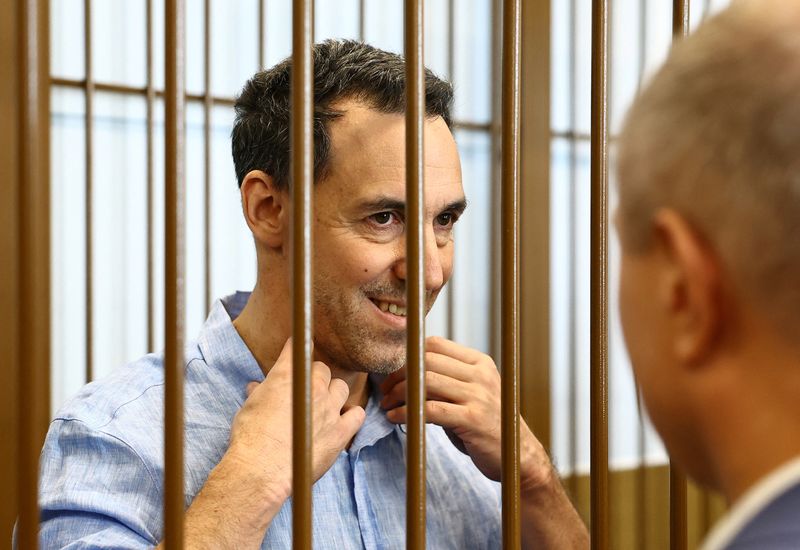Russian court extends arrest of Frenchman until Feb. 21
2024.09.03 08:32
MOSCOW (Reuters) – A Russian court extended the detention of a French researcher until Feb. 21 on Tuesday, at a hearing over accusations he collected military information without registering as a foreign agent, Russia’s RIA news agency reported.
Independent news outlet Mediazona quoted Laurent Vinatier’s lawyer as saying before the start of the hearing that the Frenchman had admitted his guilt and that the defence was therefore asking the court to proceed rapidly to a verdict.
France says Vinatier has been “arbitrarily detained” by Russia and has called for his immediate release.
Vinatier, an expert on the former Soviet Union with long experience of working in Russia, was arrested at a central Moscow restaurant in June by masked officers from the FSB security service, the main successor to the Soviet-era KGB.
In July, the FSB said he had pleaded guilty to the charge against him, which carries a sentence of up to five years.
Vinatier was not included in a major East-West prisoner swap last month in which Moscow got back eight Russians jailed abroad in exchange for the release of 16 people held in Russian and Belarusian prisons, including Americans, Germans and eight Russian dissidents.
Russia says relations with France have hit a low point since French authorities placed the Russian founder of the Telegram messaging app, Pavel Durov, under formal investigation last week in connection with the use of the app for crimes such as fraud, money laundering and child pornography. Durov’s lawyer has called the proceedings against him absurd.
French President Emmanuel Macron has denied that Vinatier worked for the French state. He has described his arrest as part of a disinformation campaign by Moscow.
Vinatier is an employee of the Centre for Humanitarian Dialogue , a Swiss-based conflict mediation organisation. In a statement following his arrest, it said its staff work globally and “routinely meet with a wide range of officials, experts and other parties with the aim of advancing efforts to prevent, mitigate and resolve armed conflict”.

The FSB said in July that Vinatier had tried to use his numerous contacts with political scientists, sociologists, economists, military experts and government officials to collect military details “that could be used by foreign intelligence services to the detriment of the security of the Russian Federation”.
Under Russian law, people are obliged to contact the justice ministry and register as foreign agents if they are involved in political activity or collecting military information while receiving financial or other help from abroad.








